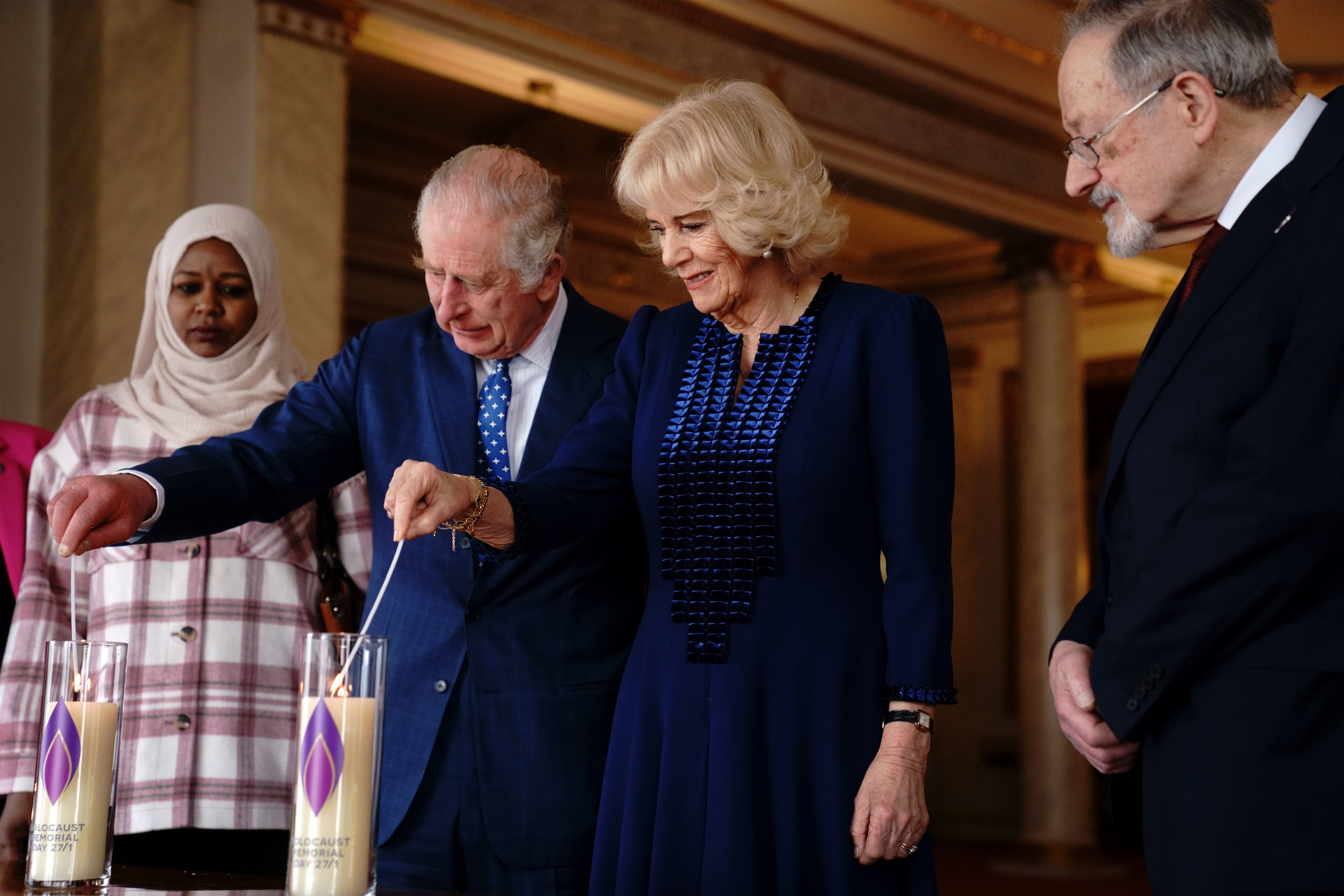King and Queen Consort light candles to remember horrors of the Holocaust
The royal couple lit the candles at Buckingham Palace after meeting a survivor of the Second World War genocide.

Your support helps us to tell the story
From reproductive rights to climate change to Big Tech, The Independent is on the ground when the story is developing. Whether it's investigating the financials of Elon Musk's pro-Trump PAC or producing our latest documentary, 'The A Word', which shines a light on the American women fighting for reproductive rights, we know how important it is to parse out the facts from the messaging.
At such a critical moment in US history, we need reporters on the ground. Your donation allows us to keep sending journalists to speak to both sides of the story.
The Independent is trusted by Americans across the entire political spectrum. And unlike many other quality news outlets, we choose not to lock Americans out of our reporting and analysis with paywalls. We believe quality journalism should be available to everyone, paid for by those who can afford it.
Your support makes all the difference.The King and Queen Consort have lit candles at Buckingham Palace to remember those who suffered “such horrors” during the Holocaust.
On Friday morning, Charles and Camilla met with Dr Martin Stern who was taken to Nazi concentration camps during the Second World War as a young boy.
They lit two candles in remembrance of victims of genocide to mark Holocaust Memorial Day.
After doing so, the King said: “I hope this will be one way of trying to remember all those poor people who had to suffer such horrors for so many years- and still do.”
Dr Stern, who was born to a Jewish father and non-Jewish mother, survived the Westerbork transit camp in the Netherlands and the Theresienstadt ghetto in northern Bohemia (now in the Czech Republic) after being taken away by officers at the age of five.
His father died in a separate camp in 1945, and his mother died due to an infection during childbirth in 1942.
He told PA: “We talked about the importance of education about the Holocaust and about other genocides.
“The King was very insistent on inquiring about other genocides as well, and so was the Queen Consort.
“So, the importance of education the importance of starting that education at an early age.”
Speaking about the lighting of the candles, he added: “That is immensely important. The perpetrators would like that we would just forget about it, move on to other things so they get on quietly with doing more of their horrific crimes.
“Lighting a candle publicly is a marker that makes it hard for tyrants and state criminals to perpetuate their mass crimes quietly.”
Charles and Camilla also met with Amouna Adam, from the persecuted Fur tribe, who survived genocide in Darfur in western Sudan, as well as representatives of the Holocaust Memorial Day trust.
They discussed ongoing work to ensure the lessons learned during genocides are not forgotten.
Laura Marks, chair of the Holocaust Memorial Day trust, said: “What the King was able to offer us, to share with us, was his interest in both in the Holocaust, but also, in the other genocides and the work that he’s doing.
“And he’s been the patron of the Holocaust Memorial Day trust for many, many years as Prince of Wales, and we were talking to him about how important that is for us as a charity because it adds so much credibility and so much weight when a charity has as a patron like that.”
She added: “The King is so powerful, so important in being able to bring attention, focus attention on the dangers of hate speech, hatred today and he was just magnificent on that one.”
Victims of the Holocaust are remembered each year on January 27 – the anniversary of the liberation of Auschwitz-Birkenau, the largest Nazi death camp.
The day is also used to remember the millions killed in subsequent genocides in Cambodia, Rwanda, Bosnia and Darfur.